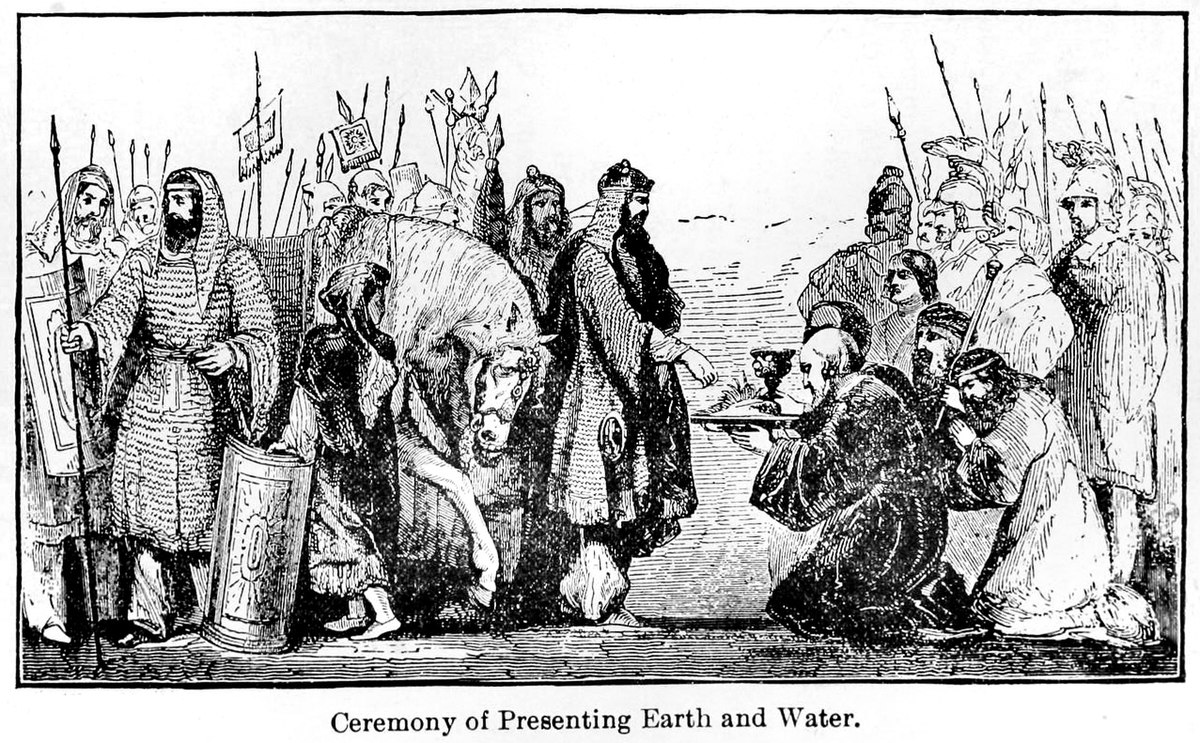Athens-which had never undergone a Dorian occupation-did not become a polis as early as Sparta but lingered as an aristocratic tribal state. It was divided territorially into plains, hills, and coastal land, and politically into four tribes, each of which had brotherhoods (phratries) or territorial subdivisions (trittyes). Within each phratry a further distinction was drawn between those who owned and worked their farms (the clans) and the guildsmen, who belonged to an association of artisans or merchants. Each mature male was admitted into a phratry either as a clansman or as a guildsman. Land descended in the clan and might not be passed outside it. The guildsmen were citizens though not aristocrats; apparently they could sell or transfer their property.
Three archons (leaders or chief men)-one of whom managed religious affairs, one military affairs (the pole- march), and one civil affairs-were joined in the seventh century by a board of six recording archons (legal officials). Each was elected for a year, at the end of which all nine automatically became members of the Council of Areopagus, the chief judicial and policy-making body. Although a general assembly of all the males directly elected the archons and thus the future members of the Areopagus Council, only clansmen could be elected.
These longstanding political arrangements were challenged in 632 by a young noble’s plot to seize power, which led to scandal when his followers were massacred even though they had taken sanctuary at the altar of Athena. The noble family held responsible for this sacrilege was banished, and in 621 B.C. a specially appointed official, Draco, allegedly published the first Athenian law code, famous for its severe penalties. The harshest of all Athenian laws were those on debt; a bankrupt clansman could never sell or mortgage his land but was compelled to mortgage its produce to his debtor. Thus he could oblige himself and his heirs to work the land indefinitely for somebody else, in effect losing his freedom. Bankrupt guildsmen became the property of their creditors as slaves.
In the 590s a reformer, Solon, freed both the clansmen and guildsmen suffering these penalties, canceled current debts, and published a new constitution, or law code. He tried to improve the general prosperity by emphasizing the need to abandon complete economic dependence on agriculture and to foster a lively new commerce. He even offered citizenship to citizens of other poleis who would come to work in Athens. He opened the most important offices of state to the richest men, whatever their origin. A man whose land produced fewer than 300 bushels of grain or only about 1,800 gallons of olive oil a year was eligible only for the general assembly.
Solon is also said to have founded the Council of Four Hundred, consisting of one hundred members from each of the four tribes, all named by Solon himself, to act as an inner circle of the general assembly of the people, preparing materials for discussion and making recommendations for action. The general assembly now could not act without such a recommendation; but it could vote against it, and it still elected the archons. And Solon also made the assembly a kind of court by selecting a panel of its members by lot to review the work of the magistrates.

